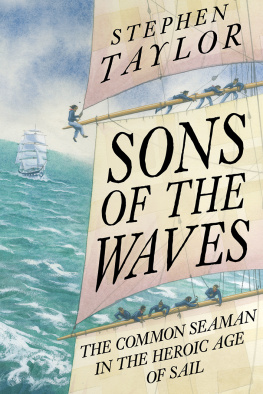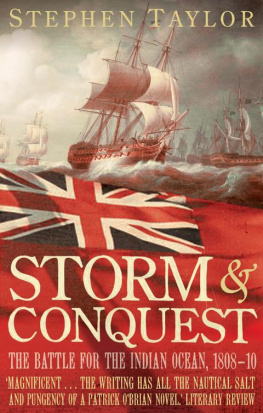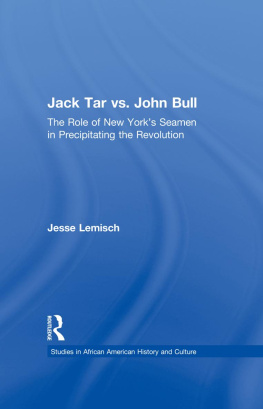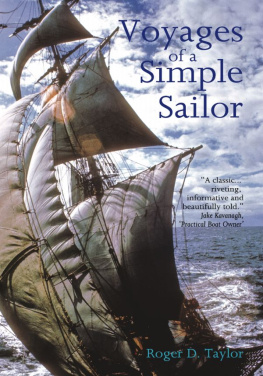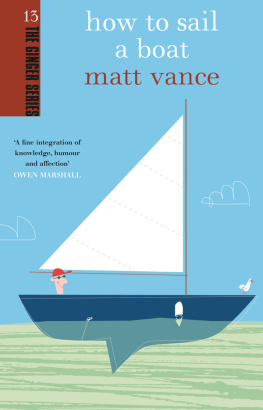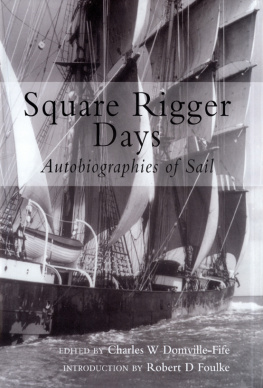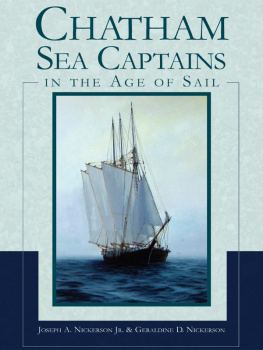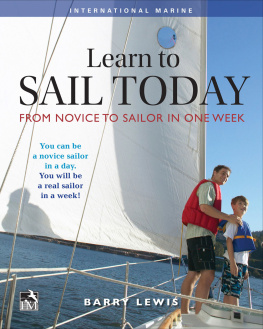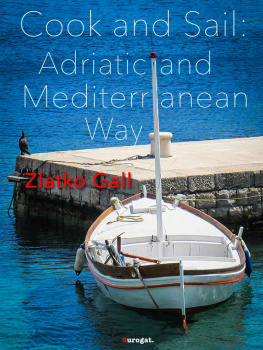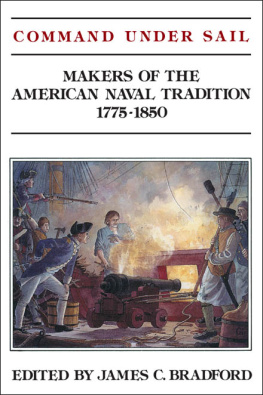SONS OF THE WAVES

Published with assistance from the Annie Burr Lewis Fund.
Copyright 2020 Stephen Taylor
All rights reserved. This book may not be reproduced in whole or in part, in any form (beyond that copying permitted by Sections 107 and 108 of the U.S. Copyright Law and except by reviewers for the public press) without written permission from the publishers.
For information about this and other Yale University Press publications, please contact:
U.S. Office:
Europe Office:
Set in Adobe Garamond Pro by IDSUK (DataConnection) Ltd
Printed in Great Britain by TJ International Ltd, Padstow, Cornwall
Library of Congress Control Number: 2019954649
ISBN 978-0-300-24571-4
A catalogue record for this book is available from the British Library.
10 9 8 7 6 5 4 3 2 1
To Caroline, again and always
Your trade is the mother and nurse of your seamen; your seamen are the life of your fleet, and your fleet is the security and protection of your trade, and both together are the wealth, strength, security and glory of Britain.
Lord Haversham to the House of Lords, 1707

CONTENTS

ILLUSTRATIONS
IN THE TEXT
PLATES
.

PREFACE
THE precise span of his long and turbulent life is a matter of some dispute. Some say he is to be seen as early as 1577, among the 166 seamen who circumnavigated the globe with Francis Drake on the Golden Hind. He was certainly recognizable by the 1650s when Britain went to war at sea against the Dutch as well as the Spaniards. At Trafalgar, he emerged fully formed: the common man as national hero. What concerns us here, however, is an era the century from 1740, when Foremast Jack, the man who went aloft under the British flag, established his countrys command of the oceans.
Also known as Jack Tar, his very name proclaimed him a man of the people Jack being a generic term for the common man. Yet among them he was an outsider, almost another species. At a time when others of his class might never stir beyond their native valley, he roamed the world like one of the exotic creatures he encountered on his travels, returning home bearing fabulous tales some of them actually true as well as curious objects and even stranger beasts. Although while at sea he was as poor as any rustic labourer, ashore he knew spells of brief wealth. Then, fired up with back pay and prize money, he would eat, drink, cavort and fornicate like a lord. Habitually profligate and with a terrifying thirst for alcohol, he was loyal to his ship, his country and his king, roughly in that order. Most of all, though, he was loyal to his mates, and it was this kinship, as of a tribe, that made him capable of the endeavour and boldness that marked him in his golden age, under Horatio Nelson.
He was, simply, the most successful fighting man ever produced by his native land which, with its taste for booty, pugilism and foreign adventure, is saying quite something. So profoundly did he believe in himself, and so deeply did he awe the enemy, that defeat was never contemplated and rarely experienced. His spirit earned him the respect, the admiration, and sometimes even the love, of his officers.
It was not only in action that he was tested. Voyages of exploration, of trade and of imperial expansion took him to the farthest reaches of the globe. Jack was with Captain Cook in charting the South Seas. He joined in the discovery of a Pacific idyll, and helped to cast Captain Bligh adrift when the dream turned to nightmare. He went aloft in the East India Companys ships, venturing to lands of outlandish peoples and mystifying customs. Among the cargoes he shipped were humans African slaves to the Caribbean and convicts banished to the ends of the earth. In doing so he encountered perils every bit as dire as those he faced in battle; for if one thing about his existence is plain, it is that he was far more likely to be carried off by disease or shipwreck than by a cannonball.
The dangers and hardships even sufferings of his life are well known, and were certainly enough to deter most of his compatriots. Samuel Johnson spoke for baffled Landsmen in general when he declared: No man will be a sailor who has contrivance enough to get himself into a gaol; for being in a ship is being in a gaol, with the chance of being drowned. One clergyman who joined a man-of-war and fled as soon as he was able could not fathom how human beings dwelt in a prison within whose narrow limits were to be found Constraint, Disease, Ignorance, Insensibility, Tyranny, Sameness, Dirt and Foul air: and in addition, the dangers of Ocean, Fire, Mutiny, Pestilence, Battle and Exile.
Still, we do well to challenge received truisms that are confined to the wretchedness of existence below decks, most notably that glib old chestnut about rum, sodomy and the lash. While obviously there was a great deal of rum, many hands went years at sea without being flogged, and sodomy was a capital crime scorned by almost the entire tribe. The bleak monograph that portrays Jack as a hapless sufferer does no justice to his individuality. He might be a press-ganged hostage, yet he could also be an enthusiastic volunteer; as often as he was a noble simpleton he was a cunning devil; the drunken dolt was sometimes a thoughtful and, yes, literate, traveller. And at a perilous moment in Britains history, he showed a capacity for rebellion and defiance that utterly terrified his superiors and countrymen.
What might be termed the miserabilist school prevailed for most of the last century. John Masefield was a key influence on it and one might be forgiven for wondering why on earth the poet laureate, who spent part of his early life on windjammers, ever in the elegiac words of Sea Fever wanted to go down to the sea again.
The truisms of another age have been overtaken by the subtler work of modern historians. In the past decade particularly, Britains maritime past has been chewed over and contested from a range of perspectives. What might be termed a revisionist school has challenged long-received attitudes about matters ranging from the press gang to discipline and social history, provoking vigorous debate among academics not only in home waters but across the Atlantic.
While addressing recent scholarship, this book will attempt to advance a different form of narrative. It will do so by confining itself to the lives and experiences of common seamen, as related in their own tales and memoirs and through maritime records; and it will argue that the notion of victimhood falls down, not only because of Jacks achievements, but because of his spirit. One characteristic stands out above all others in his storytelling, and it is self-respect. These reminiscences, it has been argued, are not invariably to be trusted: on top of his tendency to be carried away by a good yarn, Jacks memoirs are said to have been used as a vehicle for polemical axe-grinding in a time of reform. But the records are there for us to test his accounts, and to a remarkable degree they stand up to scrutiny.
Over the century to be examined, the seafaring man became a crucial figure in almost every aspect of Britains endeavours. He was the essence of its defence its guard against invasions as well as the key to its victories and the means by which it acquired wealth and new possessions. Without him there could have been neither the trade nor the exploration that made Britain a mighty power. The fact that he stood out among his less adventurous compatriots that he dressed differently, talked differently, even walked differently conferred further distinction on him. For his part, the simple truth is that he rather looked down on anyone who was not a seaman.
Next page
